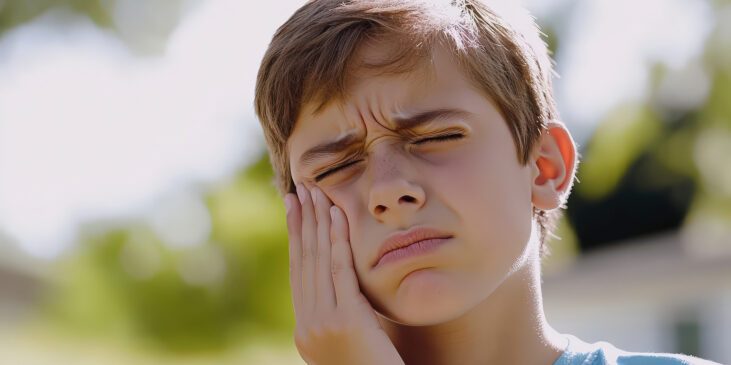Teeth grinding is a condition that involves involuntary grinding, clenching, or gnashing of the teeth and can occur at any age. When these actions occur repeatedly and regularly, they can cause tooth decay or other oral health problems.
Signs of teeth grinding
Potential signs and symptoms associated with teeth grinding include frequent headaches, toothaches or stiffness in the jaw, and tooth sensitivity. Physical signs of teeth grinding include worn tooth enamel, tooth indentations on the tongue, and chipped or fractured teeth.
Causes of teeth grinding
Stress and anxiety are sources of teeth grinding since stress can cause your jaw to clench and swing back and forth. Teeth grinding could also be due to an oral problem, such as a significant overbite or underbite. Orthodontics can help correct some of these oral problems by aligning and shifting teeth to their proper place. Finally, some medical conditions can lead to excessive teeth grinding. Sleep apnea, Parkinson’s disease, dementia, and epilepsy are a few examples of conditions associated with an increase in teeth grinding.
How to prevent it
Although teeth grinding is usually not voluntary, there are ways to prevent and reduce the damage it causes. First, relaxation is a great place to start when trying to correct excessive teeth grinding. Spend time relaxing before bed, and massage your jaw often throughout the day if you notice tension. Becoming conscious of the tension in your jaw is the first step to correcting it.
Prevent damage to your teeth by wearing a mouth guard at night. Mouth guards protect your teeth from jaw clenching and teeth grinding you may do while asleep.
One way to find out if you struggle with teeth grinding is to visit the dentist! The dentist can check for common signs of teeth grinding; and help you find ways to prevent damage. Book an appointment with Jackson Dental today by calling (573) 243-5200 or stopping by Jackson Dental’s office at 3100 E Jackson Blvd., Jackson, Mo.

